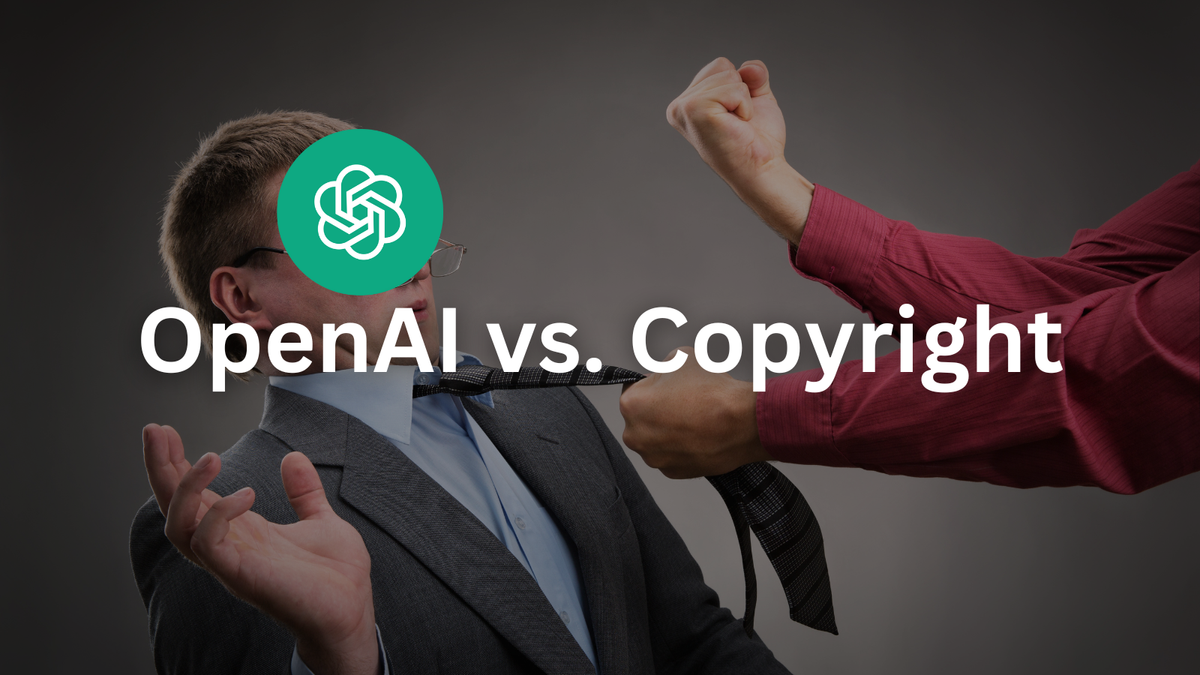OpenAI Pushes for AI Freedom: Should AI Train on Copyrighted Content?

OpenAI is urging the U.S. government to loosen restrictions on copyrighted material for AI training, arguing it’s essential to maintain America’s global AI leadership. This comes as part of President Trump’s AI Action Plan, which aims to reduce regulatory burdens on AI innovation.
But is this a necessary step to push AI forward, or does it risk undermining intellectual property rights?
OpenAI’s Argument: Why AI Needs Copyrighted Content
OpenAI believes that strict copyright regulations are holding back AI progress in the U.S. Their proposal includes:
📜 Easing copyright restrictions so AI models can train on copyrighted content without legal roadblocks.
🔓 Reducing “burdensome” state laws that limit AI development.
💰 More government investment in AI infrastructure to compete with China.
🌎 Promoting “democratic AI” abroad to ensure U.S. dominance in global AI markets.
The company argues that these measures will protect national security, boost the economy, and keep America ahead in the AI race.
The Controversy: Copyright vs. Innovation
While OpenAI frames this as a national security issue, critics see it as an attempt to bypass copyright laws.
Concerns from Content Creators:
📢 Multiple lawsuits – OpenAI is already facing legal action from The New York Times, Chicago Tribune, and several authors and artists for using their work without permission.
💸 No compensation model – Many creators argue that AI companies should pay for the content they train on, just like any other business.
⚖️ Fair use vs. exploitation – OpenAI claims it supports fair use, but critics say AI training goes beyond that, as it directly benefits companies without compensating creators.
Should AI companies have the right to train on copyrighted content without permission? It’s a debate that could shape the future of AI law.
Trump’s AI Strategy: A New Direction?
President Donald Trump has taken a pro-business, deregulation approach to AI policy. Shortly after taking office, he revoked Biden’s AI executive orders, which focused on ethics, safety, and regulation.
His administration has instead prioritized:
🚀 Massive AI investments – A $500 billion initiative called Stargate, backed by OpenAI, Oracle, and SoftBank.
📉 Rolling back regulations – Removing barriers to AI development, including copyright restrictions.
🔗 Competing with China – Trump’s team sees AI as a global arms race, emphasizing the need to outpace China’s AI advancements.
While this approach accelerates AI growth, it raises concerns about ethics, data privacy, and fair compensation for creators.

My Take: AI Progress Shouldn’t Come at the Cost of Creators
I don’t think bypassing copyright law is a good idea. Creators deserve fair compensation for their work, and allowing AI companies to freely use copyrighted material without permission sets a dangerous precedent.
However, I do believe the government can step in and help create a new system where AI companies like OpenAI can legally purchase data from content creators and media companies.
✅ A licensing system could allow AI companies to train on copyrighted content while ensuring creators get paid.
✅ Data-sharing agreements between AI firms and content providers could balance innovation with fair compensation.
Another thing I find interesting is why DeepSeek, the Chinese AI company, hasn’t faced the same level of copyright scrutiny. OpenAI is under constant legal pressure, but DeepSeek is growing rapidly without the same legal challenges—at least publicly.
🤔 How is DeepSeek handling this issue? Are they using a different approach to data collection, or is there just less legal pressure on AI development in China? It’s something worth keeping an eye on.
Ultimately, AI should advance without undermining artists, journalists, and content creators. With the right policies, both AI companies and creators can benefit—but it requires government oversight and responsible innovation.
Final Thoughts: The Future of AI and Copyright
This debate is far from over. Will the U.S. loosen copyright laws to fuel AI growth, or will content creators successfully push back for stronger protections?
💬 What do you think? Should AI companies be allowed to train on copyrighted content without paying creators? Let’s discuss on X(Former Twitter)!
References:
- NBC News: OpenAI Urges U.S. to Allow AI Models to Train on Copyrighted Material, March 14, 2025.https://www.nbcnews.com/tech/tech-news/openai-urges-us-allow-ai-models-train-copyrighted-material-rcna196313



